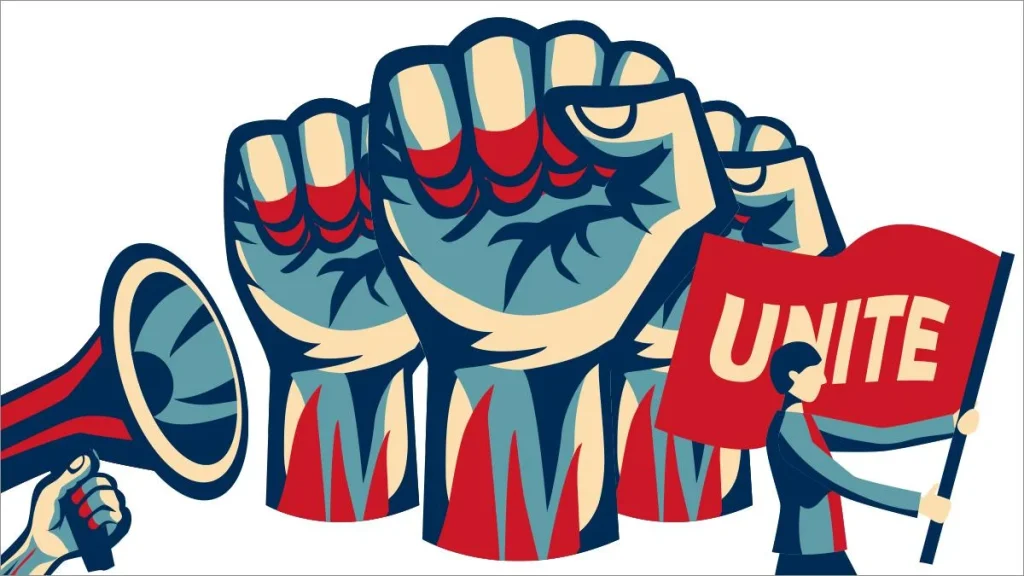
How the UK differs from the US.
My time at Queen Mary has been a tad unusual, and with the recent end of the writers strike in the US I found the thing I wanted to talk about. During my first week of classes I only ended up having one class, this was due to a university workforce strike occurring nationally. I bring this up, because the different outlooks from the normal citizens affected by these strikes differ wildly between the two nations. In the US it seems common for there to be a level of solidarity among the workforce for when other people go on strike. In the UK, it appeared that there were more critics to the strikes than those showing solidarity.
If you looked in the news about the writers’ or the actors’ strikes you would see a higher level of respect from the general populace than the opinions shared about the recent strikes in the UK. This issue goes into the core of the beliefs around modern day work in each country. The US is turning more liberal, whereas the UK is turning more conservative; which is strange as up until recently it was the other way around. It also plays into how vocal the hate for unions is in each country, as on both sides of the aisle in the US, unions tend to be a respected necessary thing in the eyes of the people. Unlike in the UK where even among the people unions are a very touchy subject.
Late Stage Capitalism
Both Nations exhibit traits of late stage capitalism, but they tend to show different symptoms or different sides of those symptoms. Take how the US has billionaires, that is a consequence of late stage capitalism. On the other hand you have the UK which is very exclusionary at this point in its history as Brexit is still relatively fresh and many of the populace still believe that their jobs are being stolen. It appears that England has only recently entered late stage capitalism, at least with the growing distrust of low income work.
